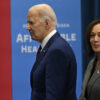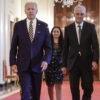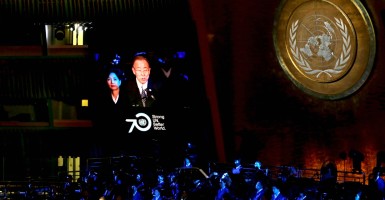Did it escape your attention that last month was the 70th birthday of the United Nations? Did you miss the opportunity to celebrate by following Elyx on an “exciting 70-day (virtual) trip around the world to shine light on the U.N.’s work”?
What? You’re not familiar with Elyx, the United Nations’ first “digital ambassador”? Allow me to introduce you: Elyx is a stick figure created not by a 5-year-old, but by the “renowned French artist YAK.”
You’ve never heard of YAK, either? My goodness. Yacine Ait Kaci, according to his publicists, is “currently reinventing digital street art, or misappropriating reality through virtual reality, by means of viral drawing on social networks.” Got that? Me neither.
Moving briskly along: YAK conceived Elyx as “an ideal character to embody the new collaborative economy in motion.” What might be an example of that model? Greece? Sudan? Haiti? China? North Korea?
“If Elyx were a symbol, it would represent sharing and a new vision of the real world, enhanced by the imagination to underline the beauty and poetry.”
Yes, that’s right: Elyx is an “it.” The U.N. helpfully explains: “Transcending boundaries, Elyx has no race, sex, nationality, or audible voice.”
But you should know that “Elyx fully agrees with Secretary-General Ban Ki-moon’s statement: ‘Seven decades after its founding, the United Nations remains a beacon for all humanity.’”
At the risk of seeming a U.N. birthday party-pooper, let me suggest that this may be something of an exaggeration. Take, for example, Raif Badawi, the Saudi blogger who criticized his country’s religious authorities and, as a result, was publicly flogged and has been imprisoned for years. Last week, Mr. Badawi was awarded the Sakharov Prize for Freedom of Thought, the European Union’s most prestigious human rights award.
Nevertheless, in September, Saudi Arabia’s Faisal Bin Hassan Trad was appointed to head a panel that oversees the U.N. Human Rights Council—whose membership also includes Russia, China, and Cuba. Last week, Venezuela was added to the list as well.
In other words, some of the world’s worst human rights violators run the U.N.’s top human rights organization, thereby making the U.N. Charter’s commitment to “reaffirm faith in fundamental human rights” an Orwellian joke.
The charter’s other great post-World War II vision: for the U.N. to “save succeeding generations from the scourge of war.” It’s never managed anything approaching that. And right now, of course, a broad swath of the Middle East is in flames, with the region’s ancient Christian communities facing annihilation.
U.N. peacekeepers are nothing for Elyx to write home about, either. Those in Rwanda failed to prevent genocide in 1994, those in the Balkans failed to prevent the Srebrenica massacre of Muslim Bosniaks the following year, and those in southern Lebanon today are failing to prevent Hezbollah, Iran’s terrorist foreign legion, from installing missiles in homes, schools, and mosques. The incompetence of U.N. peacekeepers in Haiti apparently set off a cholera epidemic in 2010 that has killed close to 10,000 people since.
For more than a decade, U.N. peacekeepers have been implicated in what The New York Times—a strong U.N. supporter—has described as “a string of sex scandals from Bosnia to the Democratic Republic of Congo to Haiti.” We’re not talking here about officers having affairs with diplomats’ wives. We’re talking, as the Times phrased it, about “sexual activity with minors and nonconsensual sex . Cases have come to light where peacekeepers paid children $1 or with candy to make a rape seem like prostitution.” Efforts to prosecute those responsible have made no progress, and the U.N.’s vaunted “zero tolerance” policy has been a bust.
The U.N. has been plagued by financial scandals as well—the Iraqi Oil for Food program is only the most infamous. The U.N. promised this would result in increased transparency. It hasn’t.
Is there nothing positive that can be said about the U.N.? Is it just a bureaucratic furnace that burns money, more of it from the American taxpayer (22 percent of the U.N.’s regular budget and 28 percent of its peacekeeping budget) than from anyone else?
The United Nations Development Program fights poverty but, as far as I’m aware, has won few battles and certainly no wars. And in 2007 it was caught funneling money and dual-use items to the government of North Korea. Unreported counterfeit U.S. $100 bills turned up in its office safe in Pyongyang.
The International Atomic Energy Agency has capable people on its staff, but if Iran keeps them from discovering and revealing violations of the recently concluded Joint Comprehensive Plan of Action, will you be surprised? Iran recently test-fired a ballistic missile in violation of U.N. Security Council resolution 1929. There’s been no meaningful response.
I have witnessed the United Nations high commissioner for refugees doing good work, for example with Syrian refugees in Jordan. But as the Hudson Institute’s Nina Shea has reported, the commissioner’s refugee-resettlement program “disproportionately excludes” Christians and other non-Muslim minorities.
The truth is, at age 70, the U.N. is decadent if not decrepit. It ought to be retired, but since that’s unlikely, the next American president would be well-advised to at least regard it differently. The U.N. is not the headquarters of some notional “international community,” and it’s certainly not the seed from which a global government should grow.
At most, it’s a debating society with a few marginally useful agencies attached, along with other agencies that are worthless and some that do serious harm. The next administration might consider developing an alternative international organization, one that would include only nations sincerely committed to freedom, democracy, and human rights.
Deracinated, sexless, nationless, and inaudible Elyx will not approve. Too bad for it.
Originally published in The Washington Times.





























